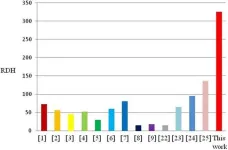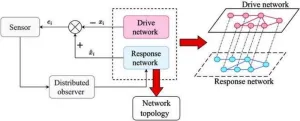ASCO: New ‘Armored’ CAR produces significant responses in patients whose cancers don't respond to current CAR T cell therapies
Phase I clinical trial also uses shorter, three-day manufacturing process for CAR T
2024-06-01
(Press-News.org) CHICAGO – While CAR T cell therapy has revolutionized treatment for many blood cancers, including non-Hodgkin lymphoma (NHL), many patients who receive CAR T cell therapy do not experience a long-term remission. For those whose cancers return or become resistant after CAR T cell therapy, the prognosis is poor, with few options left.
A new “armored” form of CAR T cell therapy, developed by Carl June, MD, the Richard W. Vague Professor in Immunotherapy in the Perelman School of Medicine at the University of Pennsylvania, may be able to help these patients. According to the results of a Phase I clinical trial, presented today at the American Society of Clinical Oncology (ASCO) Annual Meeting (Abstract 7004), the new CAR T was safe, and had a three-month overall response rate of 80% in 20 patients with NHL whose cancers were relapsed or had stopped responding to treatment after receiving a commercially available CAR T cell therapy.
“By the time we treat someone with commercially available FDA-approved CAR T cell therapies, they’ve already tried at least one other treatment that either didn’t work at all or their lymphoma relapsed, and they’re very hopeful that CAR T cell therapy—which has made such a difference for so many—will work for them too,” said Jakub Svoboda, MD, an associate professor of Hematology-Oncology, who led the clinical trial at Penn Medicine’s Abramson Cancer Center. “If the standard of care CAR T cell therapy doesn’t work for them, it’s incredibly disappointing. While we still have more follow-up to do, it’s gratifying to see so many patients with lymphoma responding to this novel CAR T cell product developed here at Penn.”
The first-in-human study evaluated huCART19-IL18, an anti-CD19 CAR that was further modified to secrete the pro-inflammatory cytokine, interleukin 18 (IL 18), based on preclinical studies that showed it could enhance CAR T activity.
“We’ve likened this CAR T to an armored truck or tank because the release of IL 18 further protects the CAR T cells and promotes their ability to attack the cancer cells,” said June, whose pioneering research led to the first approved CAR T cell therapy in 2017.
The production of huCART19-IL18 also uses a process, developed by Penn’s Center for Cellular Immunotherapies, that shortens the manufacturing time for the CAR T cells to three days. For patients with aggressive, fast-growing cancers, this means being able to begin CAR T cell therapy quicker than is currently possible with standard manufacturing times of nine to 14 days. A previous, preclinical study found the shortened manufacturing time also may enhance the potency of the T cells.
The addition of IL 18 did not result in any new or unexpected safety concerns beyond the known side effects of CAR T cell therapy, including cytokine release syndrome (CRS) and neurotoxicity, which were managed successfully. As patient follow-up continues, the median overall survival after treatment has not been determined yet, with some of the earliest patients treated now in remission for two years or more. These results represent an update from early data presented at the 2022 American Society of Hematology (ASH) Annual Meeting.
Click here to learn more about open cancer clinical trials at Penn Medicine or call 1-855-216-0098 to speak to a clinical trial navigator.
Svoboda will present the study in an Oral Abstract Session on Saturday, June 1 at 3 p.m. CT in S100bc.
###
Penn Medicine is one of the world’s leading academic medical centers, dedicated to the related missions of medical education, biomedical research, excellence in patient care, and community service. The organization consists of the University of Pennsylvania Health System and Penn’s Raymond and Ruth Perelman School of Medicine, founded in 1765 as the nation’s first medical school.
The Perelman School of Medicine is consistently among the nation's top recipients of funding from the National Institutes of Health, with $550 million awarded in the 2022 fiscal year. Home to a proud history of “firsts” in medicine, Penn Medicine teams have pioneered discoveries and innovations that have shaped modern medicine, including recent breakthroughs such as CAR T cell therapy for cancer and the mRNA technology used in COVID-19 vaccines.
The University of Pennsylvania Health System’s patient care facilities stretch from the Susquehanna River in Pennsylvania to the New Jersey shore. These include the Hospital of the University of Pennsylvania, Penn Presbyterian Medical Center, Chester County Hospital, Lancaster General Health, Penn Medicine Princeton Health, and Pennsylvania Hospital—the nation’s first hospital, founded in 1751. Additional facilities and enterprises include Good Shepherd Penn Partners, Penn Medicine at Home, Lancaster Behavioral Health Hospital, and Princeton House Behavioral Health, among others.
Penn Medicine is an $11.1 billion enterprise powered by more than 49,000 talented faculty and staff.
END
ELSE PRESS RELEASES FROM THIS DATE:
2024-06-01
BOSTON—People who have had type 1 diabetes for more than 50 years without kidney complications may still be at substantial risk for heart disease, despite excellent control of blood pressure, cholesterol and blood sugar levels, according to a study presented Saturday at ENDO 2024, the Endocrine Society’s annual meeting in Boston, Mass.
Heart disease is a major cause of death in people with type 1 diabetes, especially in those who develop kidney complications from diabetes.
“As people with type 1 diabetes live longer due to improved medical care, a substantial proportion of these patients survive without kidney complications, but are still at high risk for heart ...
2024-06-01
BOSTON—Medications for type 2 diabetes and obesity known as GLP-1 receptor agonists may lower the risk of acute pancreatitis recurrence in people with obesity and those with type 2 diabetes, according to a study presented Saturday at ENDO 2024, the Endocrine Society’s annual meeting in Boston, Mass.
Doctors have been cautious about prescribing these medications in patients with a history of pancreatitis due to the potential risk of worsening the condition – a warning that is included in prescribing information, said lead researcher Mahmoud Nassar, M.D., Ph.D., Department of Medicine ...
2024-06-01
BOSTON—Having medical conditions linked to obesity does not impact the total weight loss achieved with the anti-obesity medication tirzepatide, according to an industry-supported study being presented Saturday at ENDO 2024, the Endocrine Society’s annual meeting in Boston, Mass.
Obesity causes or worsens over 200 diseases. It has been widely believed that when patients suffer multiple medical problems, they are not able to lose as much weight as those without medical issues. The new study, funded by tirzepatide maker Eli Lilly Inc., was designed to see if having more obesity-associated ...
2024-06-01
BOSTON—People under age 50 have a greater risk for heart attack or stroke if they’ve lived with obesity for 10 years, according to industry-sponsored research being presented Saturday at ENDO 2024, the Endocrine Society’s annual meeting in Boston, Mass.
“It is well established that people who have excess weight at any point in time have a greater risk of heart attacks and strokes. What was not known was whether it matters for how long someone has been exposed to excess weight,” said Alexander Turchin, M.D., M.S., Director of Quality at the Division of Endocrinology at Brigham & Women’s ...
2024-06-01
BOSTON—One year after a prediabetes diagnosis, Asians were more likely to develop diabetes mellitus whereas Black patients were more likely to remain in prediabetes range, highlighting racial disparities in diabetes prevention, according to data presented at ENDO 2024, the Endocrine Society’s annual meeting in Boston, Mass.
“Every year a small proportion of patients with prediabetes will progress to diabetes mellitus with some proportion of patients reverting to normal glucose levels,” said Ewelina Niedzialkowska, M.D., an internal medicine resident at Corewell Health William Beaumont University Hospital, in Royal Oak, Mich. “While diet, lifestyle ...
2024-06-01
BOSTON—The type of estrogen in hormonal birth control may influence anxiety-like behaviors, according to data presented by Abigail Hegwood, M.S., from the Prakapenka Lab at ENDO 2024, the Endocrine Society’s annual meeting in Boston, Mass.
“It is plausible that estrogen type is a key player in mood or cognitive related side effects of hormone-based contraceptive use,” said Alesia Prakapenka, Ph.D., an assistant professor in the Biomedical Sciences program at Midwestern University in Downers Grove, Ill.
According to the CDC, 12.6% of women in the United States between the ages of 15 and 49 reported using oral contraceptives from ...
2024-06-01
In an era where robotics are increasingly becoming a part of everyday life, a significant breakthrough has been made by a team of researchers at Zhe jiang University, China. Their latest creation, a wrist-inspired soft actuator capable of bidirectional torsion, promises to transform the landscape of soft robotics.
The innovative design of this actuator, described in detail in the journal Cyborg Bionic Systems, is inspired by the human wrist's ability to perform complex movements. Unlike traditional robotic mechanisms that rely on rigid components, this soft actuator utilizes a magneto-pneumatic hybrid system combined with a Kresling origami structure. This design allows for an astonishing ...
2024-06-01
Researchers from Huazhong University of Science and Technology, in collaboration with the Donders Institute for Brain, Cognition and Behavior at Radboud University, have developed a revolutionary method for the rapid identification of network topologies. Their new approach, detailed in a recent publication in Cyborg Bionic Systems, significantly accelerates the process of understanding complex dynamical networks, which are crucial in numerous applications ranging from power grids to transportation systems.
The innovative method, named Finite-Time Topology Identification of Delayed Complex Dynamical Networks (FT-TIDCN), leverages finite-time stability ...
2024-06-01
BOSTON—Prediabetes increases the risk of dying before age 75, particularly due to heart disease, kidney disease and acute diabetic complications, according to a new study presented Saturday at ENDO 2024, the Endocrine Society’s annual meeting in Boston, Mass.
“Prediabetes is well known to increase the risk of developing diabetes; however, information about other complications of prediabetes in Latin America was limited before this study,” said study researcher Carlos Fermin-Martinez, M.D., of the National Autonomous University of Mexico in Mexico City, Mexico. He is also with the National Institute of Geriatrics in Mexico ...
2024-06-01
BOSTON—Semaglutide improved taste sensitivity, changed gene expression in the tongue that’s responsible for taste perception, and changed the brain’s response to sweet tastes, according to research presented Saturday at ENDO 2024, the Endocrine Society’s annual meeting in Boston, Mass.
“People with obesity often perceive tastes less ‘intensely,’ and they have an inherently elevated desire for sweet and energy-dense food,” said Mojca Jensterle Sever, Ph.D., of the University Medical Centre in Ljubljana, Slovenia.
Jensterle Sever and colleagues designed a proof-of-concept study on the impact of GLP-1 ...
LAST 30 PRESS RELEASES:
[Press-News.org] ASCO: New ‘Armored’ CAR produces significant responses in patients whose cancers don't respond to current CAR T cell therapies
Phase I clinical trial also uses shorter, three-day manufacturing process for CAR T

